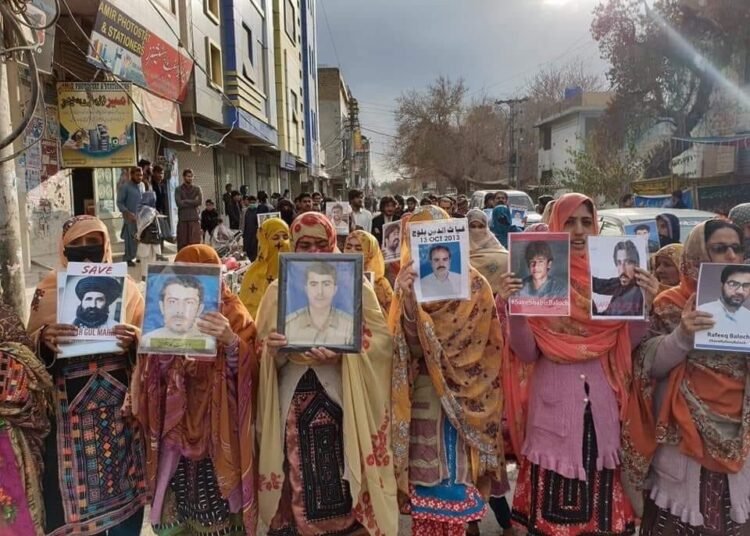The Baloch Republican Party has brought to light what it claims to be atrocities committed by the Pakistan Army in the Dera Bugti district of Balochistan. In a statement released on social media platform ‘X’ on Sunday, the party’s spokesperson, Sher Mohammad Bugti, alleged that the labour quarters in Sui town had been sealed by the enforcement agencies, and approximately 150 people, including families and children of labourers, had been taken into custody.
Bugti, in his post, accused the Pakistani deep state of employing these actions as a tactic to pave the way for its chosen candidates in the so-called ‘elections’. He expressed skepticism about the fairness of elections in Balochistan, asserting that it is more of a selection process orchestrated by the powerful Inter-Services Intelligence (ISI) and the Pakistani army. Bugti’s post conveyed a sense of frustration, stating, “There is no need for the state to conduct so much drama in order to pick a puppet, which it can do without any problem.”
The issue of abductions and extrajudicial killings at the hands of the Pakistan Army and ISI has been a longstanding and deeply concerning matter for the people of Balochistan. The Baloch community has consistently raised its voice against these human rights violations, seeking international attention and condemnation.
Currently, the situation in Balochistan is further exacerbated by the blockade of the China-Pakistan Economic Corridor (CPEC) route by family members of three Baloch students—Aslam, Hammal, and Bahadur Chakar. The students were allegedly abducted from Hoshap and Tajaban provinces, turning their abduction into a focal point for major protests in the region.
Mahrang, a prominent leader of a large demonstration in the area, emphasized the dual nature of the situation. While the people of Balochistan are protesting against the alleged Baloch genocide and human rights violations, the state continues its perceived inhumane policy, which has been described as the Baloch genocide.
The leader Mahrang, appealing to international human rights organizations, called for a more significant role in ensuring the recovery of Baloch youth. The ongoing protests underscore the gravity of the human rights crisis in Balochistan and the urgent need for attention from the global community.
The Baloch Republican Party’s claims add to the complex and deeply rooted issues faced by the Baloch people. The accusations of forced disappearances, arbitrary detentions, and sealing of communities paint a grim picture of the challenges faced by the residents of Balochistan. The concerns raised by the party echo those raised by various human rights organizations, shedding light on a situation that demands thorough investigation and international intervention.
As the allegations unfold, the international community faces the challenge of addressing these reported human rights violations and ensuring accountability for the actions of the Pakistan Army and ISI. The plight of the Baloch people, caught in the crossfire of geopolitical interests and regional conflicts, serves as a stark reminder of the urgency to prioritize human rights and work towards a peaceful resolution in the troubled region of Balochistan.













